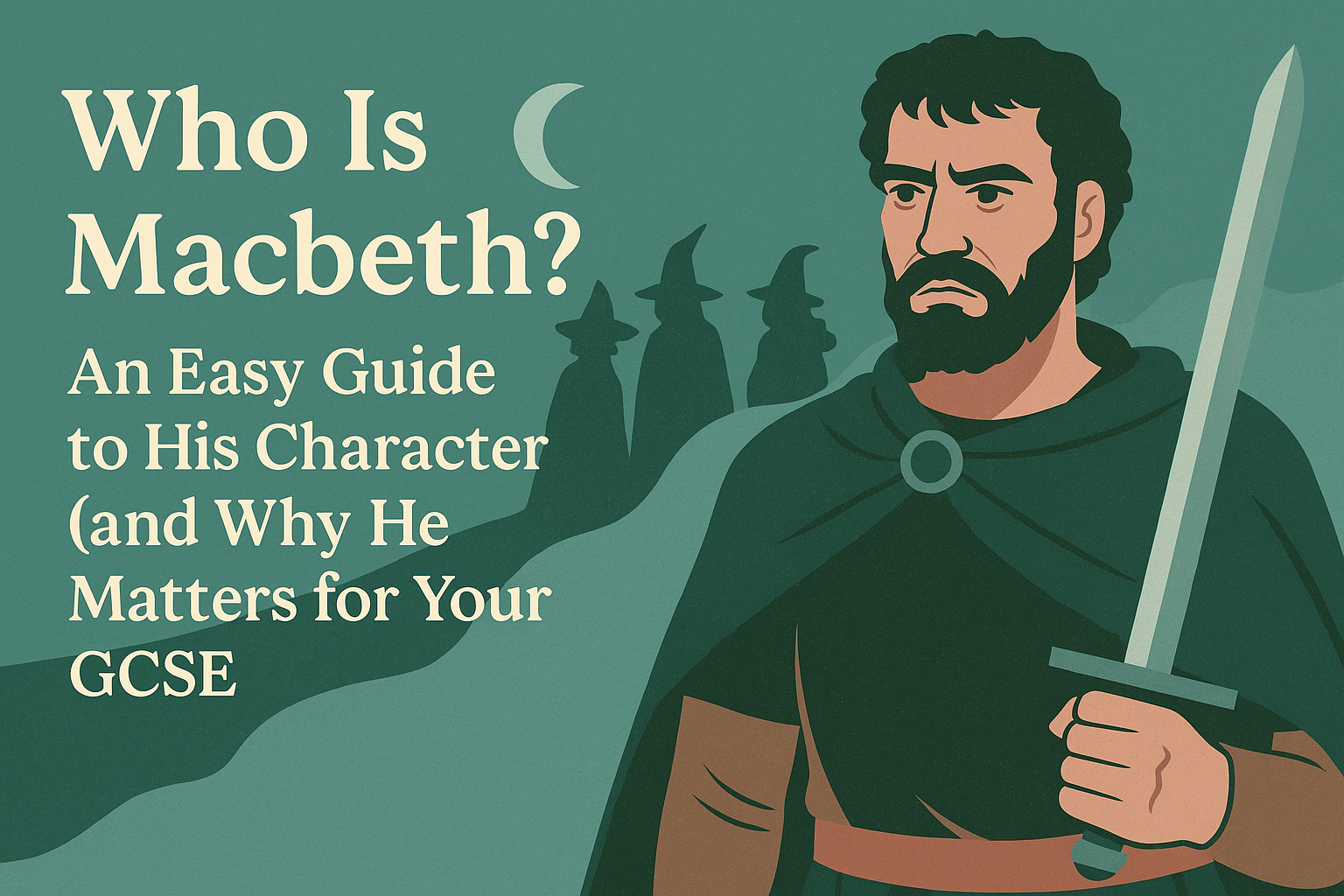Who Is Macbeth? An Easy Guide to His Character (and Why He Matters for Your GCSE)
If you’re studying Macbeth for GCSE English Literature, you’ve probably realised already that it’s not just a story about witches and battles. It’s a play about ambition, guilt, power and consequences - and at the centre of it all is Macbeth himself.
Whether you find Shakespeare tricky or you’re already a fan, understanding the character of Macbeth is essential for your exams. As a former Head of English and GCSE examiner, here’s a quick, student-friendly guide to who he is, what happens to him, and why he’s such an important figure in English Literature.
✅ Who Is Macbeth?
At the start of the play, Macbeth is introduced as a brave and loyal soldier, fighting for King Duncan in battle. He’s respected and admired - but everything changes when he meets three witches, who predict that he’ll become King of Scotland.
From this moment, ambition takes hold of him. Macbeth starts to think about what it would mean to be king, and whether he’s willing to kill to get there.
✅ How Does His Character Change?
One of the reasons Macbeth is such an interesting character is that he changes so much during the play:
Act 1-2: He’s conflicted, unsure whether to kill Duncan. Lady Macbeth pushes him, and eventually, he commits the murder.
Act 3: Guilt and paranoia set in. Macbeth arranges more murders to protect himself.
Act 4-5: He becomes ruthless, violent and isolated, no longer listening to anyone’s advice. His downfall is complete when he’s killed by Macduff.
✅ Why Is Macbeth Important?
Macbeth represents the dangers of unchecked ambition. Shakespeare uses him to show what can happen when people let their ambition, pride and fears control them. He’s a warning about what power can do to a person - and how guilt can destroy someone from the inside out.
✅ What You’ll Need to Know for Your GCSE
For your exam, you’ll need to be able to:
Explain how Macbeth changes from beginning to end.
Analyse key quotes and what they reveal about his personality.
Explore how Shakespeare presents ideas like ambition, guilt and power through his character.
Link Macbeth’s story to the play’s wider message about morality and consequences.
Final Thoughts
Macbeth is a complicated character - and getting to grips with him makes a huge difference in your GCSE English Literature grade. A bit of extra practice with essay planning, quote analysis and exam technique can help you go from “I sort of get it” to “I can smash this question in the exam”.
If you’d like expert help with Macbeth, Shakespeare’s language, or GCSE English Literature more generally, I have a limited number of tutoring slots available both online and in-person across Stockport, Cheshire, South Manchester and surrounding areas. Contact me today for a private tutoring quote - whether it’s confidence-boosting, essay skills or revision planning.
Visit my Contact page to get in touch.

